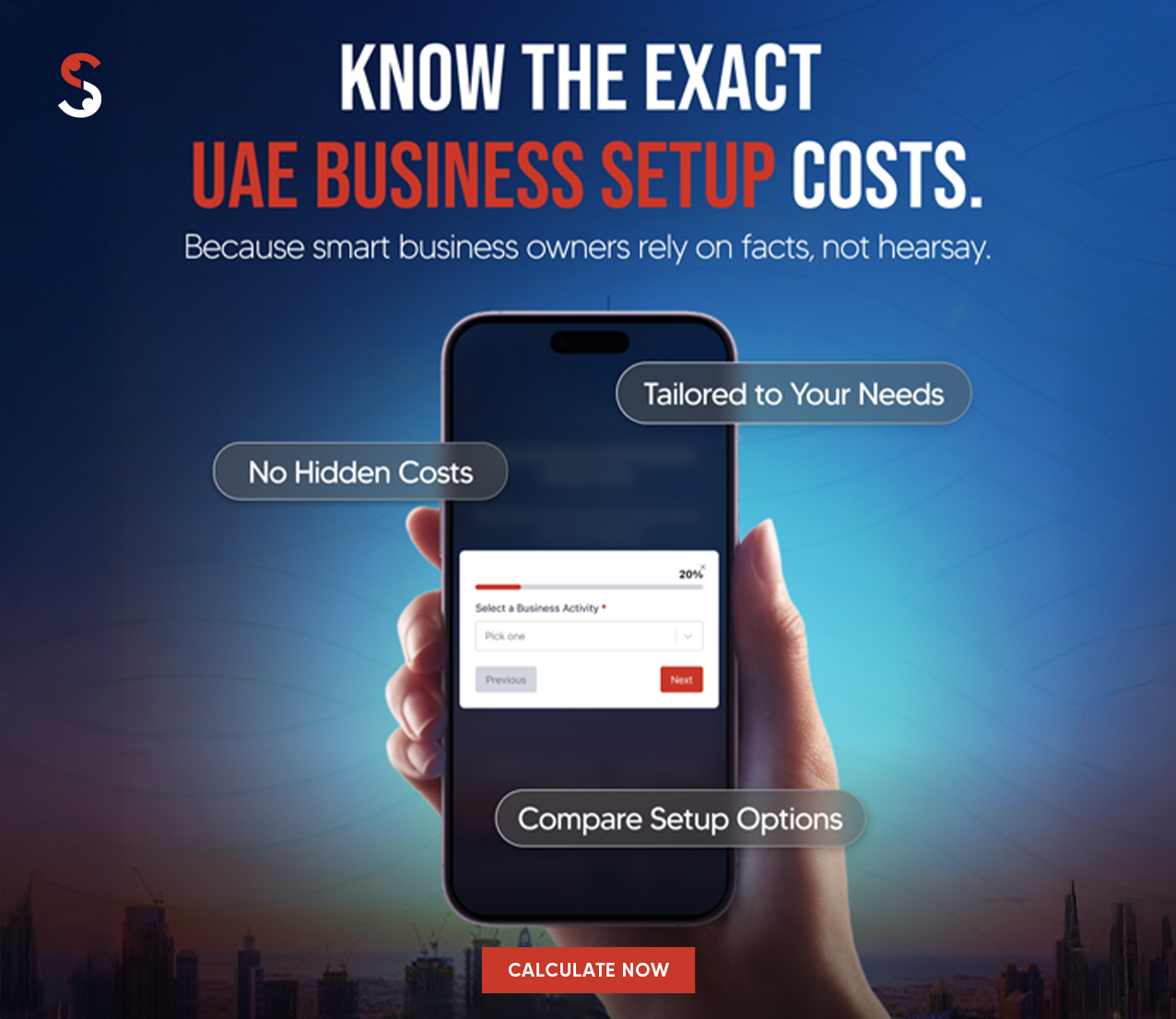Looking to start a business in Dubai as a German citizen in 2026? You’re not alone. With its top-notch infrastructure, investor-friendly regulations, and prime location between Europe, Asia, and Africa, Dubai continues to attract entrepreneurs from around the globe.
Whether you’re aiming to get into the tourism, tech, or trade sectors, the opportunity to start a business in Dubai offers immense potential for German nationals seeking global growth and financial success. This guide breaks down the key steps, legal requirements, and benefits customised specifically for German investors.
Is it profitable to start a business in Dubai, UAE?
Yes, starting a business in Dubai, UAE, can be highly profitable if planned strategically and aligned with the right market demand. Here’s why Dubai is considered a profitable destination for entrepreneurs:
Why It Can Be Profitable to Start a Business in Dubai
1. Tax Benefits
- 0% personal income tax
- Corporate tax is 9%, but only applicable if the net profit exceeds AED 375,000
- Many Free Zones offer 100% tax exemptions on import/export duties
2. Global Business Hub
- Prime location between Europe, Asia, and Africa
- Strong trade and logistics infrastructure
- Growing international investor community
3. High-Spending Population
- Dubai has a wealthy local population and a large, diverse expatriate community.
- Strong consumer demand in sectors like hospitality, retail, tourism, e-commerce, real estate, and tech
4. Ease of Doing Business
- Fast-track business registration processes
- Business-friendly government policies
- Availability of Free Zones tailored for specific industries
5. Stable Political & Economic Environment
- Low crime rate and a well-regulated business landscape
- Consistent economic growth and development
Things to Keep in Mind
- Initial costs (license, visa, office space) can be high, depending on the business type
- Market competition is tough, and differentiation is key
Most Profitable Businesses in Dubai Right Now:
- E-commerce & dropshipping
- Travel & tourism agencies
- Real estate brokerage
- Import/export businesses
- Digital marketing agencies
- IT solutions & app development
- Cafes, restaurants, and food delivery services
Understanding legal requirements and business regulations in Dubai
Here’s an overview of understanding legal requirements and business regulations in Dubai:
1. Business Structures in Dubai
You need to choose the correct legal entity when setting up your business:
- Mainland Company: Operates within the UAE jurisdiction and can trade directly with the local market. You no longer require a UAE national as a local sponsor, as it was previously required.
- Free Zone Company: Offers 100% foreign ownership, tax incentives, and full return of profits, but generally cannot trade directly with the UAE mainland.
- Offshore Company: Primarily used for holding assets and international trade; cannot operate a physical office in the UAE.
2. Licensing Requirements
Every business must obtain a trade license from the relevant authority:
- Department of Economy and Tourism (DET) for mainland companies.
- Free Zone Authorities for Companies in Free Zones.
Types of licenses include:
- Commercial license: For trading businesses.
- Industrial license: For manufacturing or industrial activities.
- Professional license: For service-oriented companies.
3. Regulatory Bodies
- Dubai Department of Economy and Tourism (DET): Mainland business approvals and licensing.
- Dubai Municipality: Building permits, health and safety regulations.
- Ministry of Human Resources and Emiratisation (MOHRE): Employment and labour contracts.
- Federal Tax Authority (FTA): VAT registration and compliance.
- Free Zone Authorities: For free zone-specific regulations.
4. Ownership and Sponsorship
- Many activities on the mainland now permit 100% foreign ownership following recent legal reforms.
- Free zones always allow full foreign ownership.
5. Business Regulations & Compliance
- Taxation: A VAT of 5% applies to eligible businesses. Corporate tax at 9% applies to profits above AED 375,000 (except in free zones with exemptions).
- Employment Laws: Clear contracts, end-of-service benefits, and compliance with MOHRE rules.
- Customs: If importing/exporting goods, you must register with Dubai Customs.
- Data Protection & AML: Certain businesses are required to comply with anti-money laundering laws and data privacy regulations.
Get Your Free Accounting or Tax Consultation
6. Key Approvals & Permits
Depending on your industry, additional approvals may be needed from:
- Dubai Health Authority (DHA): For healthcare businesses.
- Telecommunications and Digital Government Regulatory Authority (TDRA): For IT and communications.
- Food Control Department: For food businesses.
- Real Estate Regulatory Agency (RERA): For real estate firms.
7. Ongoing Legal Obligations
- Renew business licenses annually.
- Maintain proper accounting and financial records.
- File VAT and corporate tax returns on a timely basis.
- Keep employee visas and work permits up to date and valid.
Pro Tip: Regulations can vary depending on whether you set up on the mainland or in a free zone, so consulting with Shuraa Business Setup is highly recommended.
Dubai Visa Requirements for German Citizens
German citizens do not need a visa to enter Dubai for tourism or short stays and can stay for up to 90 days within any 180-day period, though they must have a passport valid for at least six months from their entry date and should verify their entry requirements.
While a visa is not required, certain documents are still necessary, including a valid passport, health insurance, proof of onward or return travel, and potentially accommodation details or financial means.
Key Requirements for German Citizens:
- Passport: Your passport must be valid for at least six months from the date of your entry into the UAE.
- Health Insurance: Travel health insurance is required for entry into the UAE, as stated by the German Embassy Berlin.
- Proof of Travel: You will need to show proof of your return or onward travel, such as a confirmed flight ticket.
- Stay Duration: You are permitted to stay for a maximum of 90 days in any 180-day period.
Important Notes*
- Mutual Exchange: The exemption from visa requirements is due to mutual exchange between Germany and the United Arab Emirates.
- Application for Different Types of Visas: For purposes other than tourism, or for longer stays, you may need to apply for a specific visa.
- Verify Entry Requirements: It is always best to check the latest entry requirements and any additional documents that may be required before your travel, as these can change.
- Recommended Documents: Even though a visa isn’t needed, carrying a passport-sized photograph and proof of your hotel booking can be helpful.
How a German Resident Can Open a Business in Dubai?
Dubai has become a magnet for global entrepreneurs, including those from Germany, due to its tax-free benefits, strategic location, and top-notch infrastructure. If you’re a German citizen looking to start a business in Dubai in 2026, here are the detailed steps you need to follow.
Step 1: Choose Your Business Activity
The first step is deciding what kind of business you want to run—trading, consultancy, e-commerce, tourism, hospitality, or manufacturing.
Your chosen activity will determine the type of license you need (commercial, professional, or industrial) and the jurisdiction where you can operate. Some activities may require special approvals from government departments, so be clear and specific about your business model.
Step 2: Select the Right Jurisdiction
Dubai has three primary business jurisdictions: the Mainland, the Free Zone, and the Offshore. Mainland allows you to operate anywhere in the UAE but requires approval from the Department of Economic Development (DED).
Free Zones offer 100% foreign ownership, full profit return, and a more straightforward setup, but limit you to operating within the zone or internationally.
Offshore setups are ideal for international business with no physical presence required. For most German entrepreneurs, Free Zones like IFZA, DMCC, and Dubai South are the most efficient and cost-effective options.
Read more: Free Zone vs Mainland
Step 3: Choose the Legal Structure
The next step is to choose the proper legal structure for your company. Options include a Sole Establishment, a Limited Liability Company (LLC), a Free Zone Company (FZE or FZCO), or a Branch Office.
Most individual German investors go for a Free Zone Establishment (FZE) or LLC, depending on the nature of their business and the need for flexibility.
Step 4: Reserve a Trade Name
Once the business structure is finalised, you need to reserve a company name. Submit 3 to 5 name options to the relevant authority (either DED or the Free Zone authority). The name must be unique, non-offensive, and devoid of religious or political references.
Also, ensure that it accurately reflects your business activity and includes the relevant legal form, such as an LLC or FZE.
Step 5: Apply for Initial Approval
Initial approval is a No Objection Certificate (NOC) from the government, which allows for the business setup to proceed. This involves submitting copies of your passport, the proposed company name, a business plan (if required), and preliminary documents.
If you’re setting up in a Free Zone, this process is handled by the zone’s authority and is usually faster than the mainland route.
Step 6: Legalise and Notarise Documents
As a German resident, certain documents require notarization and attestation. These include a copy of your passport, any shareholder agreements, and your Memorandum of Association (if applicable).
You’ll need to get them notarised in Germany, then attested by the UAE Embassy in Germany and finally by the Ministry of Foreign Affairs in the UAE. Some Free Zones assist with this as part of their setup service.
Step 7: Lease Office Space or Flexi Desk
Mainland companies are required to have a physical office in Dubai, which necessitates a tenancy contract registered through Ejari.
Free Zones offer more flexible options such as flexi-desks, virtual offices, or shared office spaces. This office lease is a mandatory requirement for issuing your trade license and obtaining an establishment card.
Step 8: Finalise Company Registration and Get Trade License
After completing all the documentation and tenancy requirements, submit everything to the relevant authority for final approval.
Once approved, you will receive your business license. This process usually takes 1–3 weeks, depending on the jurisdiction. At this point, your business is officially registered and can operate legally in Dubai.
Step 9: Open a Corporate Bank Account
With your trade license in hand, you can now open a corporate bank account with a UAE bank. You’ll need to submit your company documents, passport copies of shareholders, your trade license, and a lease agreement.
Some banks may require you to be a UAE resident and maintain a minimum balance, so research your banking options accordingly.
Step 10: Apply for a Residency Visa
Although not mandatory, applying for a UAE investor visa is highly recommended. This visa enables you to reside in Dubai, travel freely within the UAE, and access banking and utility services.
The visa process involves obtaining an entry permit, undergoing a medical test, registering for an Emirates ID, and obtaining a residency stamp in your passport. Investor visas are typically valid for 2–10 years, depending on the type of license and the investment amount.
Step 11: Ensure Tax and Compliance Requirements
New regulations in the UAE require all businesses to be compliant with tax laws. Register for corporate tax if your profits exceed AED 375,000 (9% corporate tax now applies).
VAT registration is mandatory if your turnover exceeds AED 375,000. Additionally, Free Zones may require annual audits, so ensure your accounting systems are in place from the outset.
If you find these steps difficult to understand, please don’t hesitate to reach out to Shuraa Business Setup. Our experts will guide you through each step of the process.
Documents Required to Start a Business in Dubai, UAE
Here’s a list of the basic documents required to start a business in Dubai, UAE:
- Passport Copies
- Visa Copy / Entry Stamp
- Passport-size Photographs
- Proposed Trade Name
- Business Activity Details
- Initial Approval Certificate
- Tenancy Contract / Ejari
- Memorandum of Association (MoA)
- License Application Form
Cost of Starting a Business in Dubai, UAE
If you’re a German resident looking to start a business in Dubai, the cost typically ranges between AED 10,000* and AED 50,000*. The exact amount depends on factors such as the type of business license, the size of your company, and whether you opt for a mainland or free zone setup.
For a detailed cost breakdown customised to your specific needs, please don’t hesitate to contact our experts at Shuraa Business Setup.
Ready to Start Your Business in Dubai? Contact Shuraa!
Starting a business in Dubai as a German citizen in 2026 opens doors to a world of opportunity, from tax advantages and prime location to a thriving global business environment. By understanding the legal requirements, selecting the proper jurisdiction, and choosing the appropriate business structure, you can establish a successful venture in one of the most dynamic economies in the world.
Need Expert Help Navigating Dubai Business Setup?
Starting a business in Dubai involves multiple steps—licenses, approvals, and compliance—which can be challenging, especially from abroad. Let Shuraa Business Setup Simplify the Process for You!
Call Us: +971 4408 1900
WhatsApp: +971 50 777 5554
Email: info@shuraa.com
Disclaimer: The information in this post is for general guidance only and may change due to updates in government policies or regulations.










